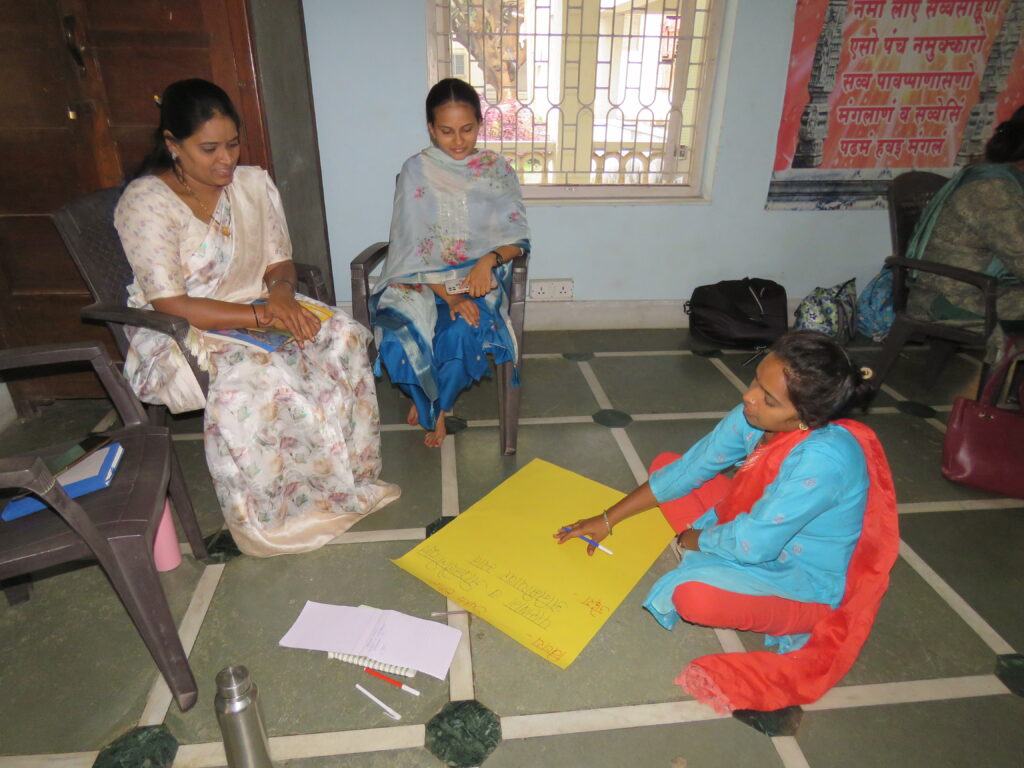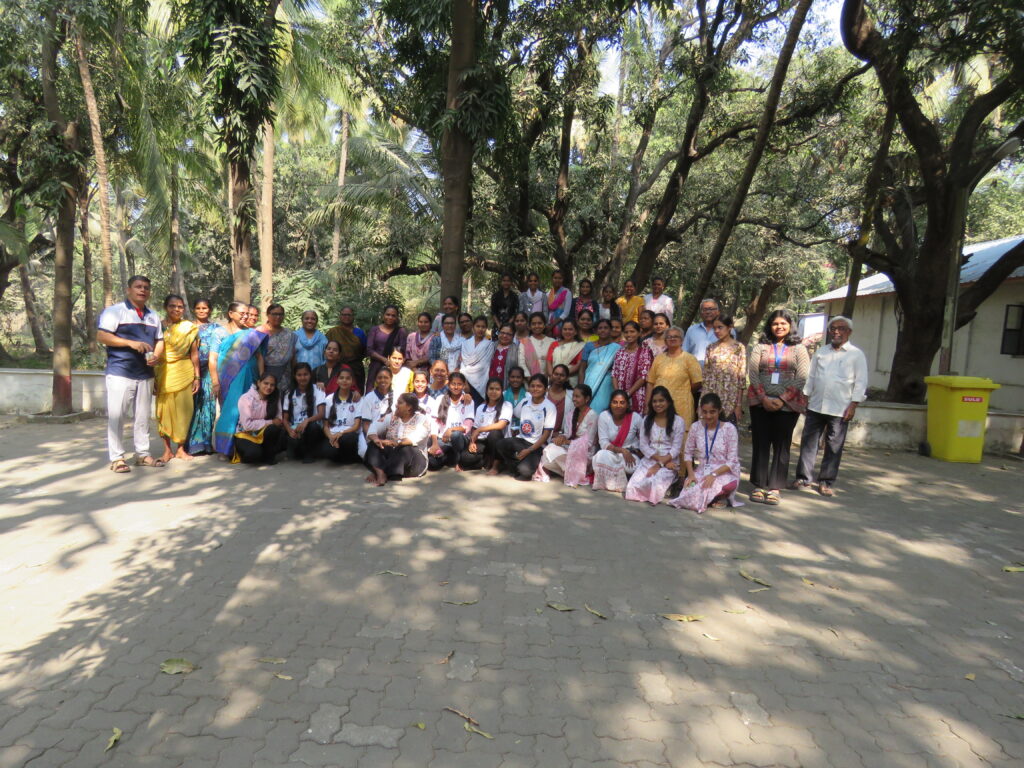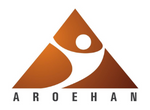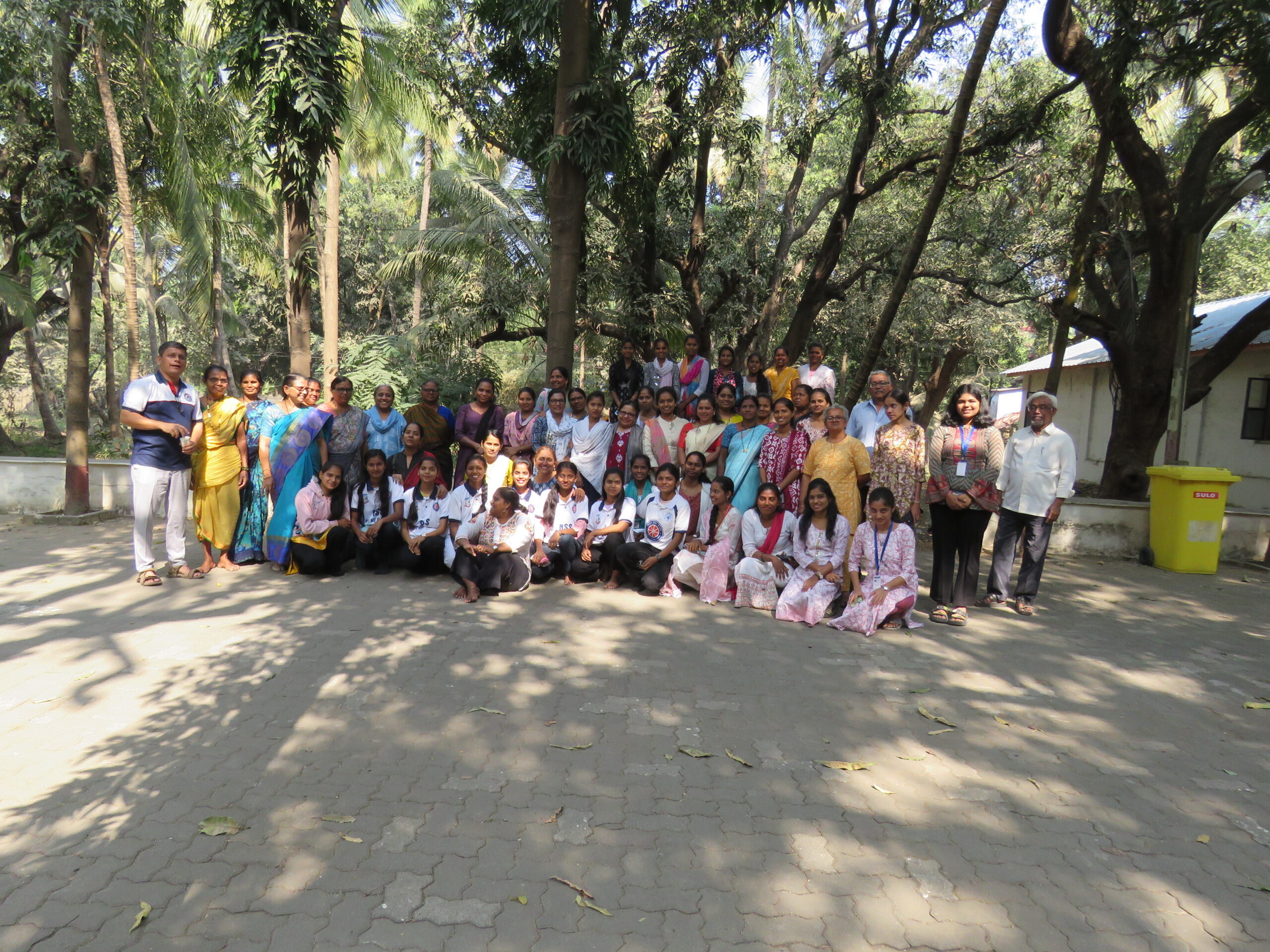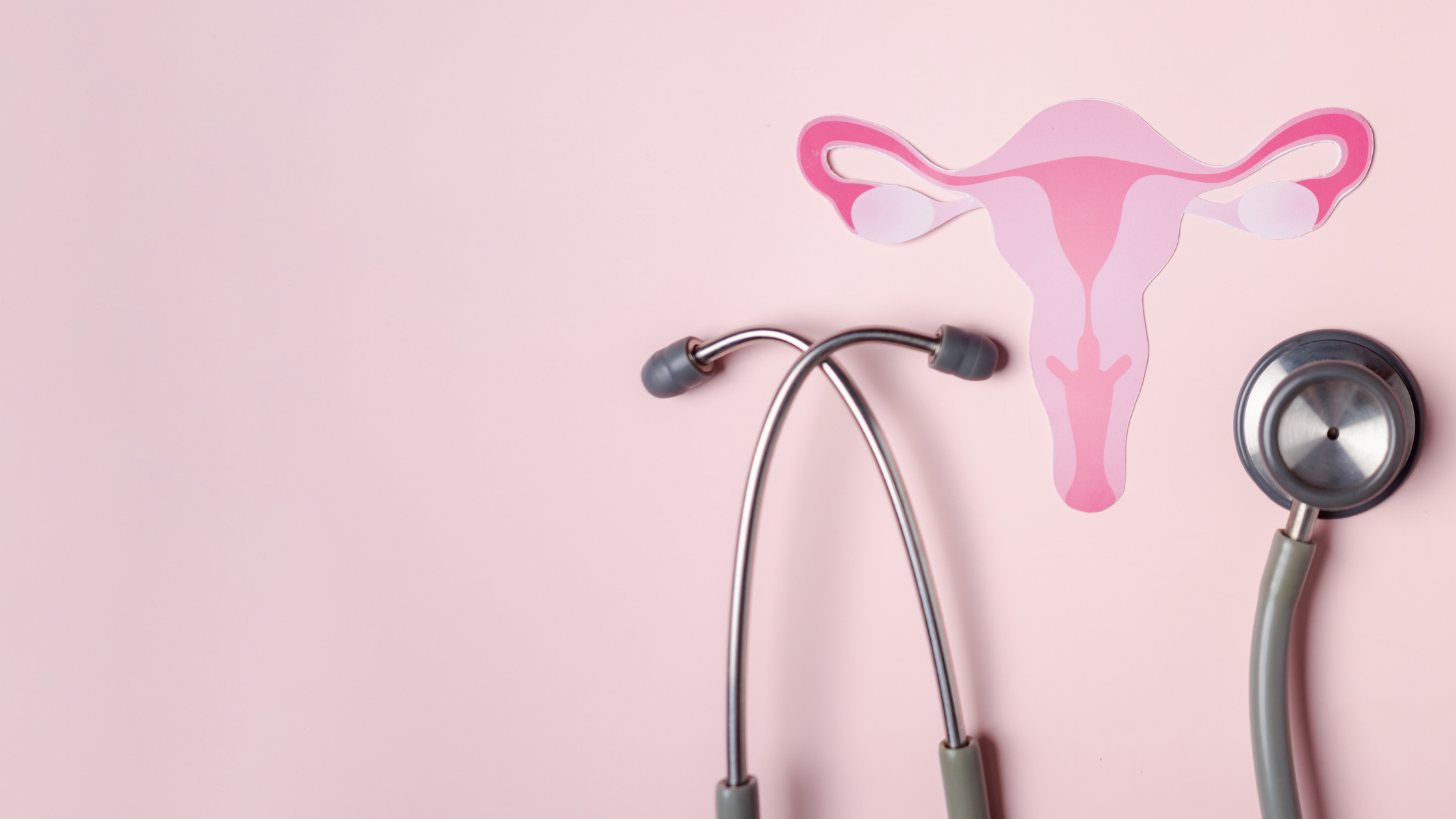Activists come together for preparation of Mahila Aarogya Haq Parishad
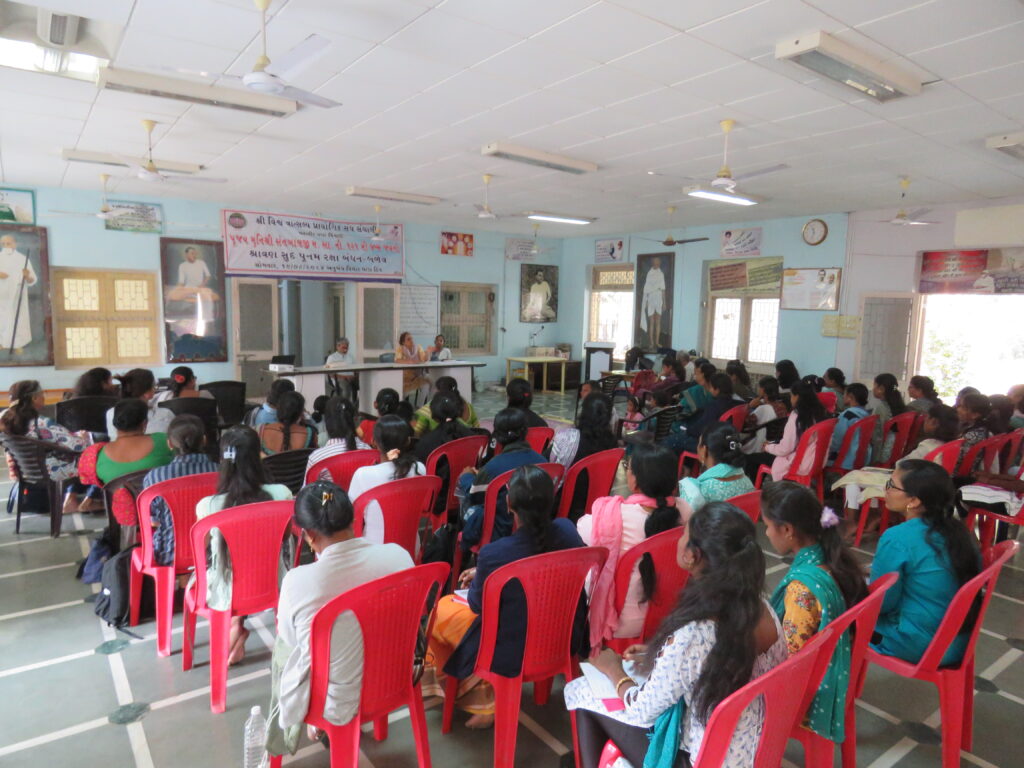
The Maharashtra Women’s Health Rights Council AKA Mahila Aarogya Haq Parishad (MAHP) provides a credible forum for activists working directly at the village level to share their knowledge and experiences. However, activists frequently lack the expertise necessary to carry out this research procedure. The ‘Study Training Camp’ was held on January 18 and 19, 2025, at Mahavir Nagar, International Centre, Taluka Dahanu, Dist. Palghar, as part of the Maharashtra Women’s Health Rights Council’s preparatory process.
In the immersive two-day experience, activists and helpers from NGOs such as Masoom, Adivasi Sahaj Shiksha Sanstha, Yuva, Kashtari, Adivasi Ekta Ekalavya Parishad, Janavadi Sansthan, Sukhbhumi, Seva Vardhini, We Are For Our Health were present. Teachers and students associated with these organisations and AROEHAN’s activists actively participated in the training. Activist Kajal Jain from Masoom, gave an overview of MAHP, the Maharashtra Women’s Health Rights Conference held annually to cater to problems and preventive care for women’s health along with significant stakeholders from the state. AROEHAN activist Sujata Ayarkar spoke about the role of the council in her work and shared her thoughts on the significance of the Palghar district as the venue for the conference.
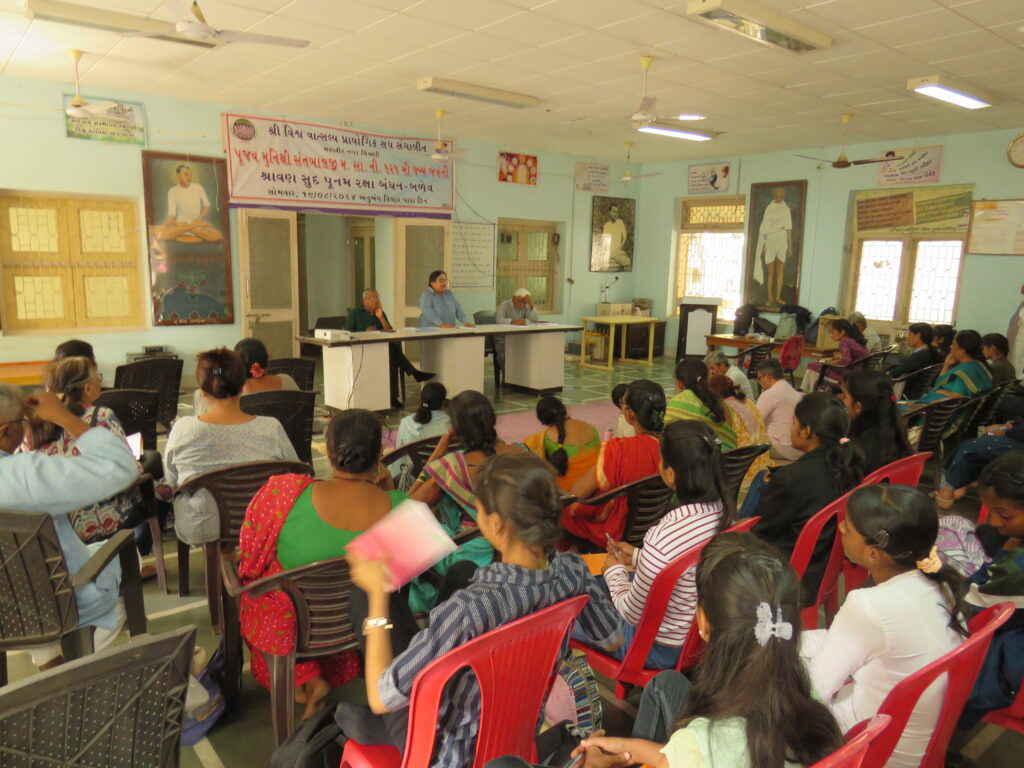
Jyoti Kelekar provided information about Palghar’s social, topographical, and economic context as well as its current state, including the rate of malnutrition, early pregnancy, mental health, issues and repercussions brought on by development projects, and the absence of water, forests, land, and health facilities. In addition to Jyoti Kelkar’s presentation, Brian Lobo stated that women’s health should be viewed as encompassing more than only reproductive health and that public health services are insufficient. AROEHAN’s Secretary Anjali Kanitkar talked about potential research questions about women’s health in the Palghar district as well as potential study techniques such surveys, focus groups, and case studies.
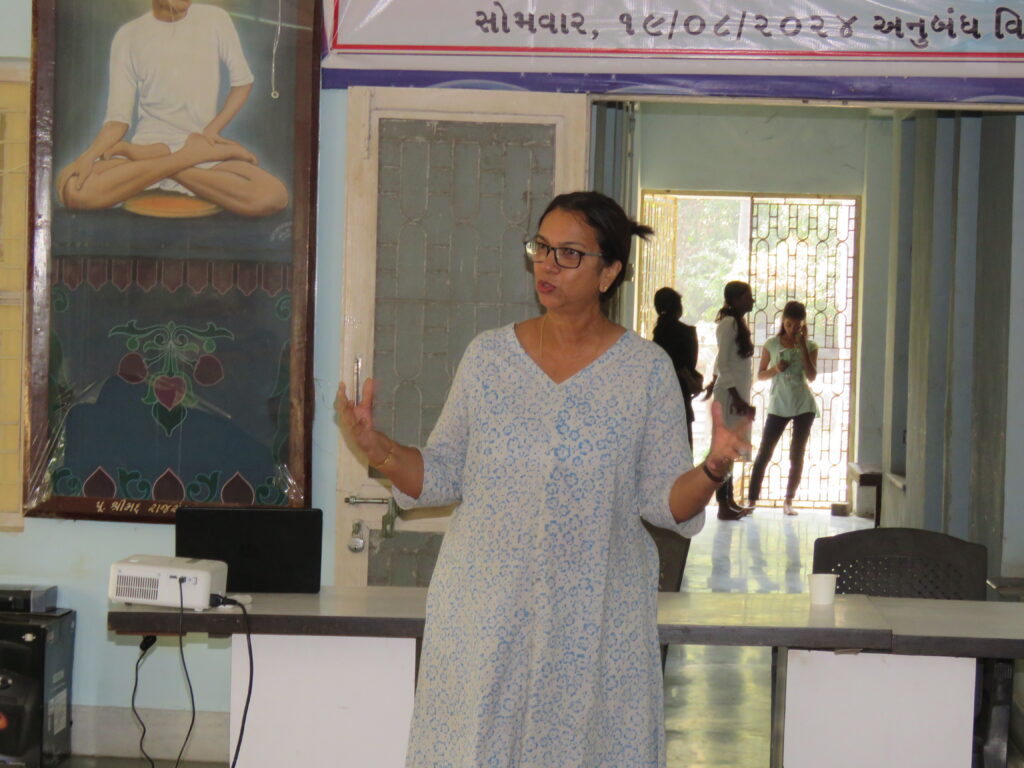
Following this, Achyut Borgaonkar talked with the participants about a variety of study-related subjects. During the session certain statistics & facts were presented such as He presented important statistics such as anaemia rates in India are 27% among males, 57% among women, and 69% among teenage girls. Pressing matters such as women being forced to seek health care alternatives due to the lack of gynaecologists in Palghar district’s government hospitals, which occasionally results in situations like maternal deaths were brought up. The key topics discussed were:
• Health issues of women working at home
• Increasing mental health issues among highly educated girls in Vasai
• Addiction in tribal communities of the Chinchani area
•. Health of women working in Maharashtra Industrial Development Corporation (MIDC), insurance services
• Early marriage/cohabitation – responsibility of children at a young age and malnutrition of mothers
• Violence against female sarpanches in politics/women in power/decision-making process by husbands/other persons
• Relationship issues of young boys and girls
• Misconceptions about menstruation
• Stress in studies, games and other activities among young students
• Sexual abuse in residential ashram schools, misconception around menstruation, menstrual register, pregnancy testing after long vacations (It was suggested by the activists present that wherever such tests are conducted, the officials of the concerned ashram school can be asked whether there is a government decision in this regard or to whom this is reported.)
• Cybercrime- Increasing use of social media by young boys and girls, Sending unsolicited photos and videos on the phone, or blackmailing for the same
• If the delivery is institutional or at home without surgery, why are stitches placed in both the ways of the woman who has given birth after being brought to the hospital? What is the reason for putting stitches if the vaginal canal does not have to be cut? There is no satisfactory answer from the doctors on this.
• Endometriosis disease and its effects
• Sensitivity of the health system staff, doctors and nurses towards women’s health
• Health consequences of girls not being able to use toilets in schools, colleges, hostels and public places
• Abha Card – It is not seen being used anywhere in Maharashtra. But women who went to Gujarat and used health facilities said that Abha Card is being used there.
• Not getting benefits of schemes despite registering during pregnancy
• Mental health problems
• Teenage pregnancy, POCSO cases, forensic cases – Cohabitation of teenage boys and girls in tribal areas – Case study
• Lack of health facilities for women who have migrated for work, lack of availability of toilets, impact on education of boys and girls
